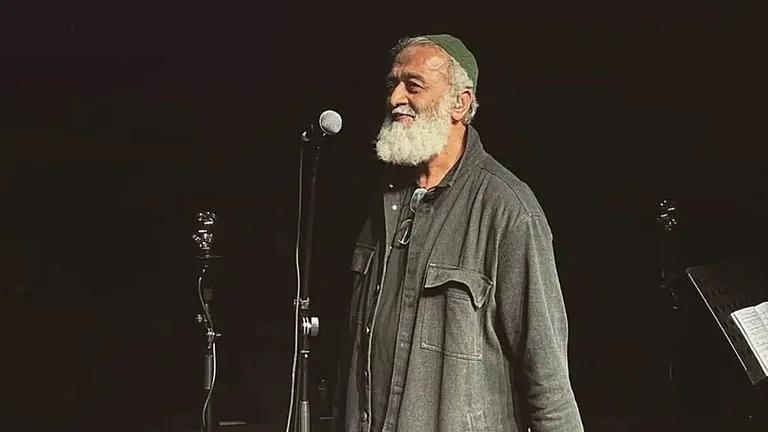In their rule, the NDA government worked devilishly hard to teach our school children a new version of history. Bapu, Nehru and that entire generation of freedom fighters must be forgotten; Nehru’s socialism, Indira’s Emergency and Rajiv’s naivete as prime ministers had to be blamed for India’s ills and misery. During the last election, the spirited ferocity of democracy disposed of these evil designs. As Talleyrand said, if people had always understood the lessons of history, there would be no history.
The Congress, in its UPA avatar, is back at the helm of governance. On his birthday, we need to think of Rajiv’s many-faceted efforts to build a truly modern India. He set himself specific tasks: devolving power to the villager and his village; getting India’s youth to adopt infotech as its own and to use it to further the cause of education; to ensure instant communications across our land, especially in the countryside; to get scientists and technologists to strengthen India through the horizon technologies of space, nuclear, genetic engineering and biotech; to induct scientific sophistication in weather forecasting to assist the farmer’s schedule of cultivation and production; to utilise science along with our traditional methods for water harvesting, conservation and storage; to ensure prompt, better, less expensive health services for all Indians; and to use all this for poverty alleviation. He charted out his plan of work by himself using his imagination, style, innovation, dynamism and idealism.
Sadly, his efforts were seen as a threat by certain vested interests, as these could eat into their profit-making. They invested enormous resources in PR to dream up vulgar slogans, cliches, whispering campaigns and allegations of wrong-doing. The focus was on destroying him politically, even physically, and as the symbol for the nation’s hopes.
The return of the Congress and the court judgement clearing Rajiv of any wrong-doing persuaded the voter to applaud his innocence. Clearly, it is the psychological factor, in a moment of creative action, that gives history its highest instructive value, its greatest moral authority, and its most lasting social utility. Our present government needs to ensure that future swayamsevaks and cultural terrorists are never allowed to refashion history.
I saw, from close quarters, Rajiv steer the nation’s external relations. He was able to look at the work of Indian missions and envoys abroad in all its aspects. Within months of becoming PM, he insisted that our missions dealing with multilateral diplomacy, with the permanent members of the Security Council, with India’s important neighbours, with select developed and industrialised states and important non-aligned ones on the other, were enabled to acquire promptly, from local sources and without the rigmarole of tenders, etc, one computer, one fax machine (then an expensive emerging technology) and one Xerox photocopier, and to train personnel to use these. As regards computers and fax machines, some of our missions discovered that, at that stage, even representatives of larger, more industrialised and affluent missions had not yet been provided these items.
He made officials at all levels of the administration recognise that hard policy decisions were required, and that such decision-making must be speedy and unambiguously clear. In case we were unable to take these decisions just then, he used to often wonder aloud when, if at all, these decisions may get taken.
He commenced in December 1988 the process of normalisation of relations with China. From 1987, he sought to structure a genuine peace process and continuing dialogue with Pakistan, never conceding in the process that j&k should or could be bartered away under pressure of the specious theory that Muslim majority regions need to be handed over to our neighbour! Universal nuclear disarmament to him was an attractive concept due to its universal humanism and idealism. His Six-Nation-Five-Continent proposals for global disarmament were meant to persuade the five nuclear weapon states to accept the concept of total and comprehensive disarmament.
He was aware of the cracks that the ageing Non-Aligned Movement was beginning to develop. He was hoping to ensure closer coordination of interests and understanding amongst the largest states of the world, viz. Brazil, Nigeria, the US, the then USSR, China and India. He was sensitive to the process of the Cold War vanishing into the mists of history. He discussed with me on two occasions, while out of power, how a new role for India had to be fashioned during his second administration and thought that work on it should begin while we had the leisure to study the concept.
He was candid, transparent, shy and a somewhat private person. He would occasionally admit that people at home and scholars and commentators abroad were forever trying to compare him to his grandfather or his mother. "I can’t afford to look back at their lives, thoughts and times, to see what they would have done in my place or situation. It is a new world and a new India. We can’t apply to our times the precise norms they had followed." "I am not prepared," he’d add, "to abandon the values that made Panditji and Indiraji, and their India, great. Ours is a new era, a new ambience, facing new problems and rejoicing in new strengths."
(S.K. Singh is a former foreign secretary.)

























